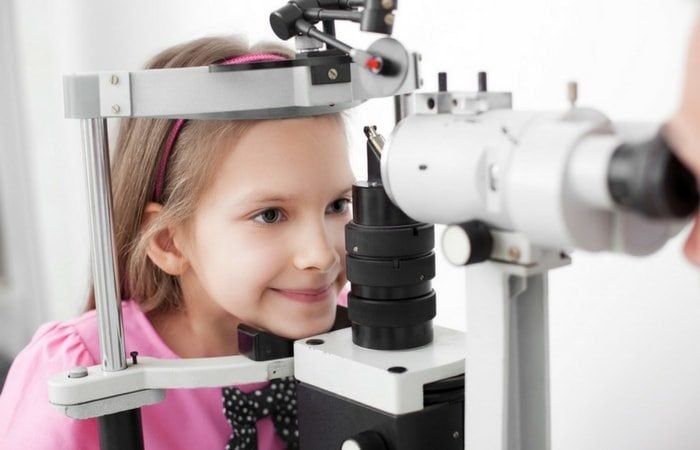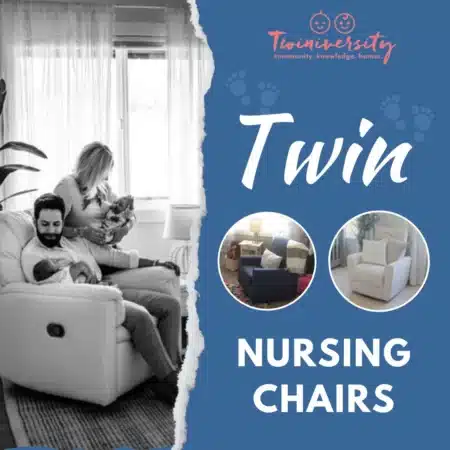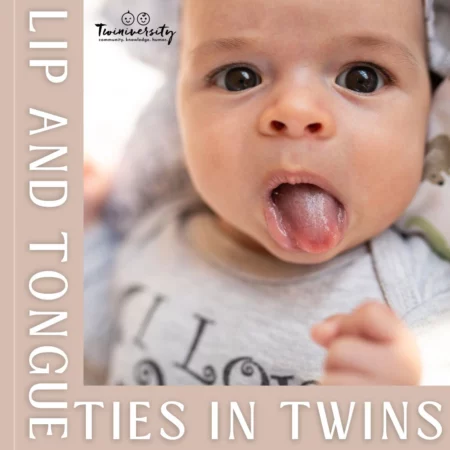Last updated on March 6th, 2024 at 09:42 pm
I’ll never forget the day I knew one of my two-year old twins needed glasses. I offered her a strawberry, and as she took it, her right eye zoomed inward, straight at her nose. Then, just as quickly, it moved back to front and center. I could have chalked it up to a weird angle or just one of those things but, having a lazy eye myself, I knew what it meant and immediately called the pediatrician.
Less than a month later my girl was prancing out of the optician wearing her first adorable pair of toddler sized eyeglasses – finally able to truly see the beauty of the world.
How Do I Know if My Child Does Need Glasses?
There are a number of reasons why your baby or toddler may need glasses including: astigmatism, far-sightedness, near-sightedness, strabismus, amblyopia and more. While some issues may be detected during a check-up, majority of the time it is the parent noticing that something is off at home. Crossed-eyes or a turn of one eye are the most obvious causes for concern but parents should be on the look out for these other signs:
- Squinting or excessive eye rubbing
- Head turning to look at something
- Tripping over or bumping into things
- Consistently holding books and toys up close or far away
- Trouble tracking objects with eyes
If you have any concern that your child’s vision is not 100% do not hesitate to contact your pediatrician for a referral to an ophthalmologist immediately.
Preparing for Your Visit to the Eye Doctor
Once you confirm there may be a problem, it is important to see an ophthalmologist who works with children. Pediatric Ophthalmologists are often miracle workers, able to diagnose a child’s vision problem and measure a prescription for lenses without any major discomfort – even when they are too young to talk. You will be visiting a lot in the next few years so be sure to find a doctor that you trust and who works well with your child.
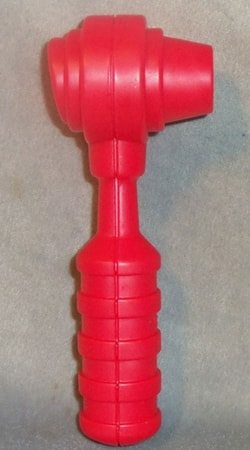
You can prepare your child by discussing what will happen and how important it is to keep our eyes healthy. Pick up a toy doctor’s kit with an otoscope and practice looking into each others eyes.
At the initial appointment your child’s eyes will be dilated through a drop in each eye. This is often the most difficult part of the appointment, but any good specialist will be able to administer the drops with little drama. Don’t worry too much about how the doctor could possibly know your child’s prescription when he or she just screamed the whole time. Somehow, majority of the time, they get it right.
After you’ve received a diagnosis, you may freak out a little (we ALL do) and you will likely have questions and concerns:
- What if they don’ t work or they need surgery?
- What if she gets made fun of?
- Will she ever be able to play sports or dance?
- How much is this all going to cost?
The best thing to do is let yourself think these things, then remind yourself to take baby steps and don’t jump to conclusions. While this may feel life altering to you, as it is your llittle one, think of all the perfectly wonderful people you know who wear glasses. Remind yourself this is just one more thing that makes them unique. Also, kids in glasses are absolutely adorable. We’re 9 months in and my daughter doesn’t even look like herself anymore without them.
You will learn a lot of new words in that initial appointment and a quick google search will tell you the basics, but it’s best to understand exactly what the problem is and how corrective eye wear will help your child. There are ways to help strengthen vision but the most important thing is to make sure they wear the glasses and use any other tools (such as drops or patching) every day.
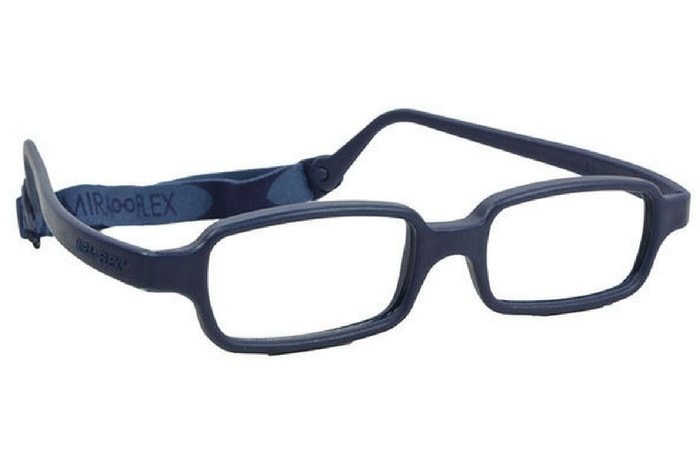
Buying Glasses for Babies, Toddlers and Young Children
Now you have got the prescription and head for the optician to get some specs. Unfortunately it’s not as easy as just walking into an optical shop and picking the pair you like best. It is very important that the glasses fit your child’s face properly. A good fit means they are comfortable and the pupil is centered in the middle of the lens.
The optician will measure your child’s head, nose and pupillary distance and match those measurements to frames. Prior to age six or so, you will want frames meant specifically for young children, such as:
These brands offer wire frames encased in soft silicone that are mostly or completely flexible and virtually indestructible. There are a wide variety of styles and colors to choose from and they come with a headstrap or stay-puts (that fit behind the ear) to help keep them in place.
It can be difficult to find an optician that carries more than one or two samples of these frames, but some companies offer try-out kits and the optician can order a sample pair at no cost to you. You can also find almost any frame online (once you have precise fit measurements) but you must have the fit checked by an optician when you have the lenses put in.
Glasses that are too big or too small will only cause more issues in the long run. Don’t buy into the claim that your child will “grow into them” thereby saving you money. They might, but at what cost to their vision?
Older children, or those less likely to break their frames, have even more options. Remember that size and fit are still more important than color or style and try to guide your child to choose the frame that is right for their prescription and face.
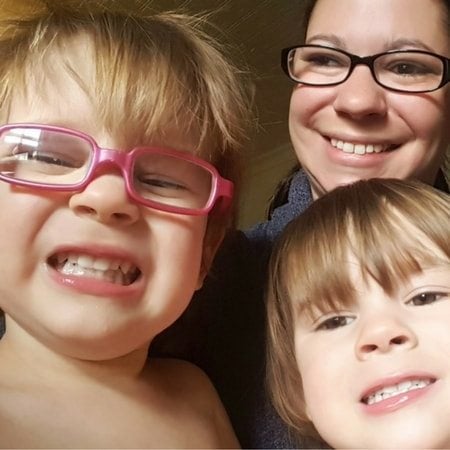
Getting Your Child to Wear and Care For Their Glasses
Hopefully, your child will put on their cool specs and be so delighted they can finally see that they never want to take them off. If this is not the case, you can try a reward system with older toddlers and preschoolers, maybe they get a sticker for keeping them on all day and a toy or outing after a month of wearing them.
That said, the best tactic to encourage wearing is simply to put them back on every single time they pull them off. Acknowledge their discomfort but stress the importance of wearing them. You can take it slow at first and allow them to get used to it, but diligence is key. If your child absolutely refuses to wear them you may want to try a different frame or have the prescription double checked.
Be sure to help your child learn to care for their glasses. My daughter knows not to use her shirt to clean them, but a special microfiber cloth. We also have a saying in our house, “If the glasses aren’t on your face then they’re in the case.” This has cut down majorly on losing them and keeps them in great shape too.
Special Twin Considerations
Many premature babies have vision problems and since twins are often premature ask your pediatrician to take extra precautions with your twins’ vision assessments so that any problems may be caught early.
If only one of your twins needs glasses you might find the other twin experiences jealousy or envy. While it is always important to stress individuality with twins, there is no harm in picking up a pair of play glasses or popping the lenses out of sunglasses so he or she can join in the fun. It can help the glasses wearing twin feel more comfortable and keep theirs on if their sibling has a set too.
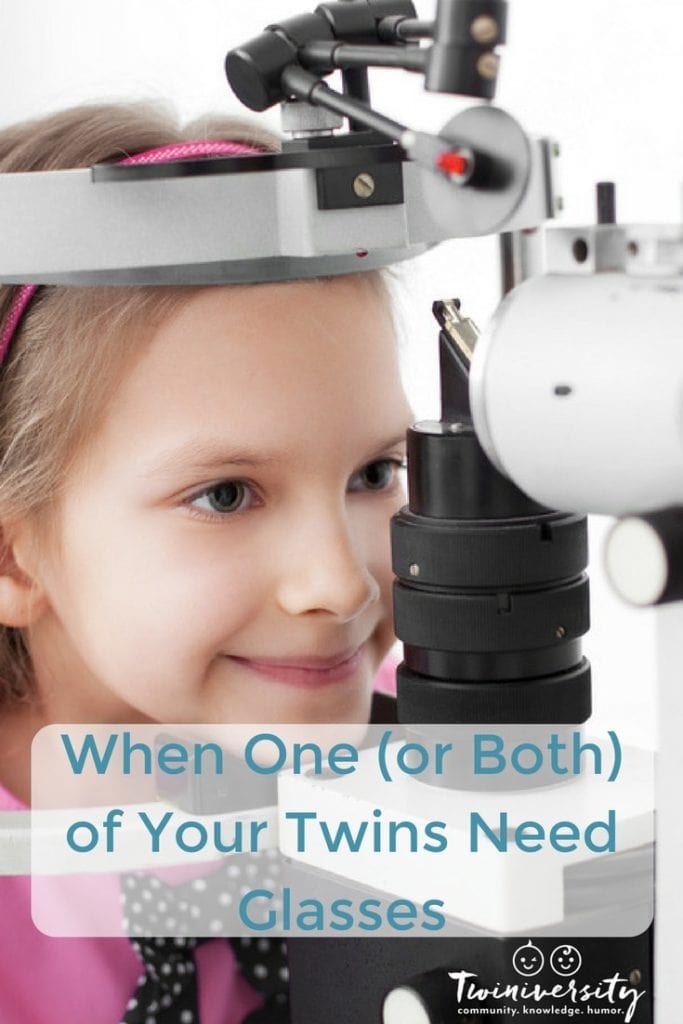
Other Resources
Be sure to make your way over to Little Four Eyes and join their Facebook community . This fantastic resource contains answers to nearly every question, as well as tons of information about how to fit, buy and encouraging your child to wear glasses.
Entering the world of vision correction can be scary and overwhelming but you are not alone on this journey. Take it day by day and trust that you are doing the best thing to help your child and their precious eyesight!

Maigen Beaulieu is a former Child-Care Provider and freelance writer living in Upstate New York with her husband, 7-year-old identical twin girls, one lazy cat (Willow), and one wild Yorkie (Ella). As a way to cope with anxiety during her twin pregnancy, she began blogging about her journey and discovered a love of writing for, and connecting with, other parents of multiples. While her blog was put to rest years ago (hello, working mom of toddler twins with zero time to write), Maigen is thrilled to join Twiniversity and help other families navigate the journey of parenting multiples. When she isn’t writing about the magic and madness of twins, she can be found reading historical fiction, researching her family history as an amateur genealogist, or sewing cute jackets for her dog. She can be reached via her blog Life and Love. Multiplied, on Twitter and Instagram.

